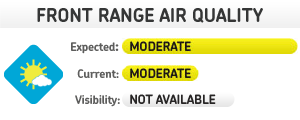RAQC’s Local Government Resource Library
The RAQC is committed to helping local governments design and implement programs and policies that help communities improve air quality. To aid in this effort, the RAQC has compiled a reference library with example ordinances, toolkits, and other materials. For more information or assistance, please contact RAQC staff.
Example Ordinances and Toolkits
Issue
(use drop down to see list of examples)
Examples
(use arrows to scroll example summaries)
Anti Idling
Policies and initiatives to limit vehicle idling.
Electric Vehicle Charging Infrastructure
Building code requirements for new construction to include electric vehicle charging capabilities.
Employer Based Trip Reduction Program
Implementation of programs that would reduce the number of individuals commuting to work in single occupancy vehicles during peak commuting hours.
Green Building
Requirements for new builds or renovations to be sustainable and energy efficient.
Green Construction
Best Operational Practices and public bid processes to encourage the use of cleaner engines in construction equipment.
Lawn and Garden Programs
Programs that reduce emissions from lawn and garden sources through replacing gas and diesel fueled equipment with electric alternatives.
Solar Panel Installation
Ordinances that require or incentivize the integration of solar energy into local development projects.

